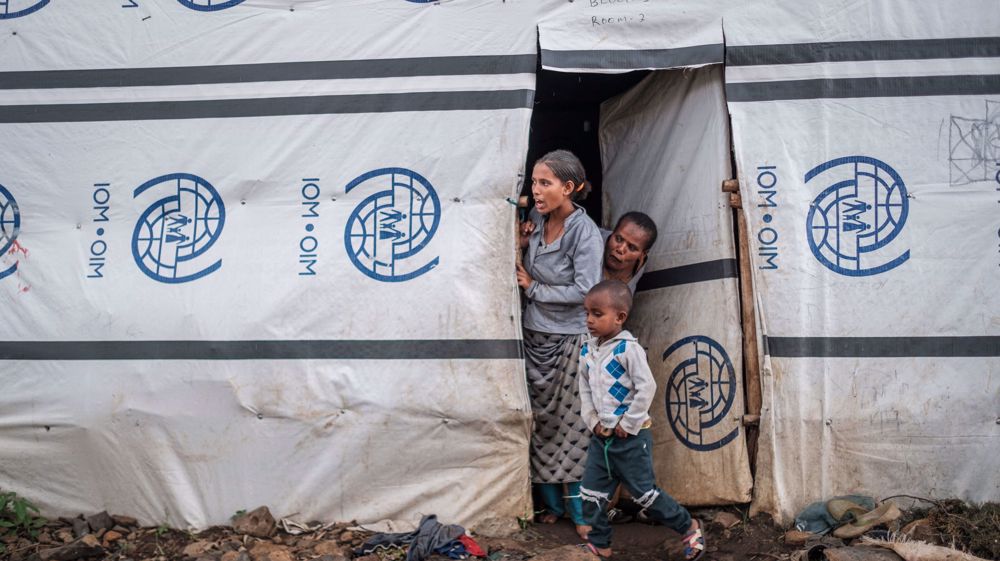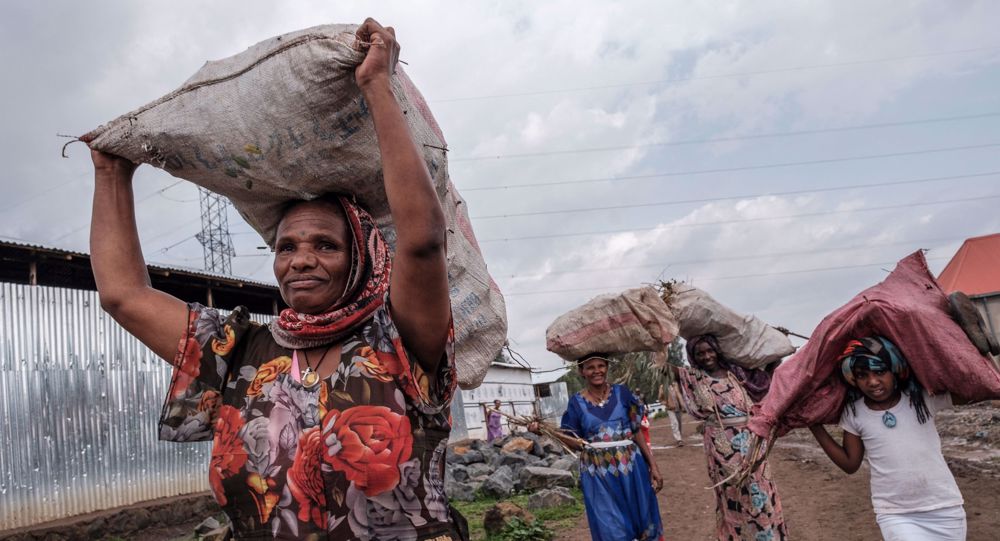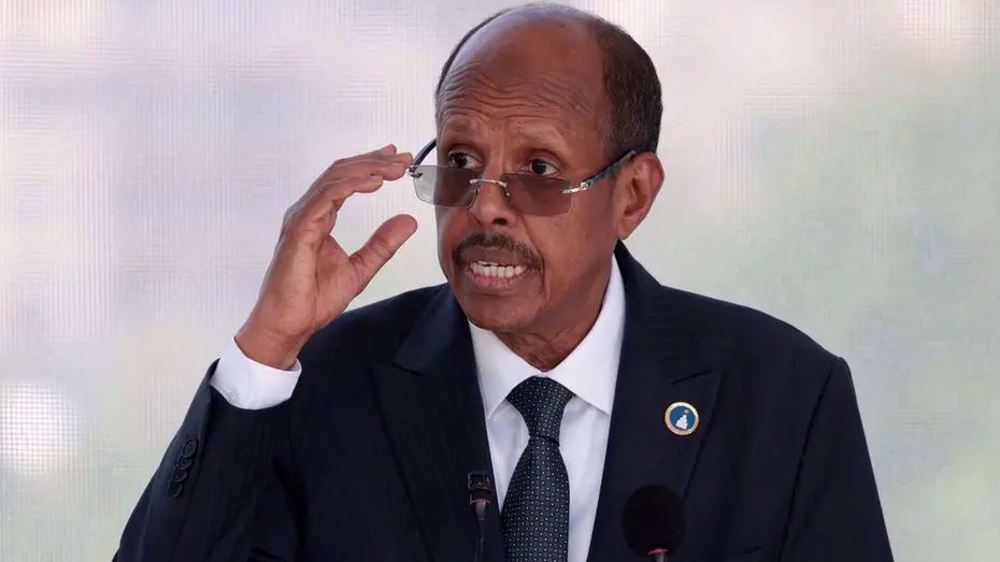UNHCR reiterates concerns about refugees in Ethiopia
The United Nations Refugee Agency has voiced concern about the situation of refugees in Ethiopia, as an armed conflict worsens in the Horn of Africa country.
The UNHCR said on Tuesday that it was concerned about the 24,000 Eritrean refugees in two camps in the Tigray region, saying they were cut off from aid and could run out of food and drinking water.
Since Ethiopian Prime Minister Abiy Ahmed sent troops into Tigray last November to oust the region's ruling party, the Tigray People's Liberation Front (TPLF), the northern region has been a conflict zone. Fighting has recently spilled into neighboring areas.
Fighters from the rival Amhara region have been battling alongside the Ethiopian government troops against the TPLF, which formerly dominated Ethiopia's political scene.
Separately, Addis Ababa on Tuesday witnessed the parade of thousands of new recruits for the country's armed forces. The recruits, who were singing "Ethiopia is calling," marched in central Meskel Square before heading for military training ahead of possible deployment to Tigray.
Officials said 3,000 young people would join the ranks of Ethiopia's National Defense Force (ENDF).
On Sunday, Amhara's regional President Agegnehu Teshager summoned fighters for battle with the TPLF. Thousands of Amhara fighters, both irregular militias and the regular regional forces, have been mobilized at the border between the two regions to fight Tigrayan forces.
Meanwhile, the United States has expressed concern about the escalation of tensions in the region, urging all sides of the conflict to halt violence. State Department spokesman Ned Price said Washington had received reports of hostilities in Tigray, condemning any retaliatory attacks against civilians in the region.
"We strongly condemn any retaliatory attacks that have been or may be directed against civilians in the Tigray region, whether by organized military or security forces or by rogue elements," Price said. "All those who are responsible for violations of international humanitarian law and human rights abuses must be held accountable."
US Secretary of State Antony Blinken told reporters that it was still unclear for Washington whether crimes against humanity, war crimes, or genocide was being carried out in Tigray.
The TPLF claimed on Monday that its fighters were pushing south and had recaptured a town from government forces. Communications are down in the region, making it hard to verify such claims.
On June 28, the TPLF recaptured the regional capital, Mekelle, which had been in the hands of federal troops for about six months. The TPLF now controls most of Tigray. However, some parts in the west and south are also claimed by the rival Amhara region.
The Tigray conflict has forced nearly two million people to flee their homes and forced around 400,000 people into famine conditions.
On Tuesday, the local government in Ethiopia's Somali region reported that fighters from the neighboring region of Afar had attacked and looted a town. The incident was the latest flare-up in a local boundary dispute that adds to broader tensions in the Horn of Africa country.
Guardians of sky: How Iran’s radar network turned 12-day war into a blueprint for deterrence
The story of ancient Persia’s chromium steel
Iranian Navy chief calls for broader naval collaboration at MILAN 2026 naval exercise
VIDEO | Mini Iraq; A city in India that connects faith across borders
Pope skips America’s 250th anniversary despite Vance’s ‘in-person’ invitation
Iran condemns Israeli atrocities, ceasefire violations in southern Lebanon
US military buildup near Iran proves defeat in previous regional wars: Ansarullah
VIDEO | Declared dead, found breathing: The miraculous survival of Najwa after Israeli bombing of Gaza











 This makes it easy to access the Press TV website
This makes it easy to access the Press TV website